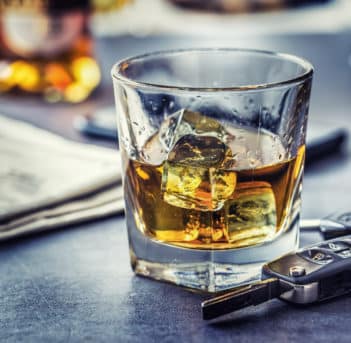
Serving People Throughout Colorado
Call Us For Free Consultation:
Drunk driving is illegal in Colorado, as it impairs the decision-making process. According to a post by Mothers Against Drunk Driving (MADD), over 300,000 Americans drive drunk daily. While Colorado has been ranked among the top 20 states with strict DUI laws, 27,000 people were arrested for DUIs in 2016. This is a substantial number, especially because only 1 percent of drunk drivers are arrested.
If you want to protect yourself from getting DUI, the only way is to drink responsibly and avoid driving yourself while intoxicated. However, if you happen to make the mistake of driving while under the influence, there are some penalties.
In Colorado, a first-time DUI is considered a misdemeanor offense. However, the penalties for DUI will depend on blood alcohol content (BAC). The penalties for a first-time DUI include:
You’ll be charged for DUI if you have a BAC of 0.08 percent or higher. Even if it’s your first DUI, if you have a BAC of higher than 0.015 percent, you can be classified as a persistent drunk driver (PDD), and you’ll be charged as a repeat-DUI offender. Additionally, you can still be charged for driving while ability impaired or DWAI if you have a BAC lower than 0.08 percent but higher than 0.05 percent.
If you have previously been charged for DUI, you are aware that you’ll face some penalties. However, the penalties for a second-DUI will tend to be higher than the first-time DUI penalties you faced. There are also some significant differences between first-time DUI penalties and second-time DUI penalties. Keep in mind that the 2nd DUI offense will carry mandatory jail time.
While jail time after a first-time DUI is often waived, a second DUI jail time is mandatory. You may have to spend at least ten days in the county jail. Additionally, if in the second DUI or DWAI offense you’re found to have a BAC of 0.08 percent or higher, you will be charged with a DUI per se criminal offense.
Whether you’re under the influence of alcohol, drugs, or a combination of both, the penalties for a second DUI are similar. Remember, while recreational marijuana may be legal in Colorado, it doesn’t mean it’s legal to drive while under the influence. Therefore, you cannot use your marijuana card as a defense for DUI. If a chemical test shows that you have five or more nanograms of 9-tetrahydrocannabinol (THC), it is presumed that your judgment is impaired.
In Colorado, it’s a misdemeanor offense to drive under the influence of alcohol or drugs. A 3rd DUI conviction carries harsher penalties than 1st or 2nd DUI penalties. Some of the penalties include:
After a 3rd DUI conviction, your license will be administratively revoked by the DMV. The only way to prevent the automatic loss of your license is to request a DMV hearing within seven days after you’re arrested. The law enforcement will provide you with a temporary license when you’re arrested, and it’s only valid for seven days. After the seven days, you won’t be allowed to drive a car until your license is reinstated.
If you’re arrested again after your 3rd DUI for driving under the influence, you will be classified as a PDD. After you’re convicted, there are additional requirements that you have to fulfill before your license can be reinstated, including:
Drunk driving is a serious offense in Colorado, and the penalties can cause serious disruptions to your life. Therefore, if you have been charged with DUI, it’s important that you have a Denver criminal defense lawyer from the Law Offices of Steven J. Pisani in your corner to protect your rights and guide you through the process.
